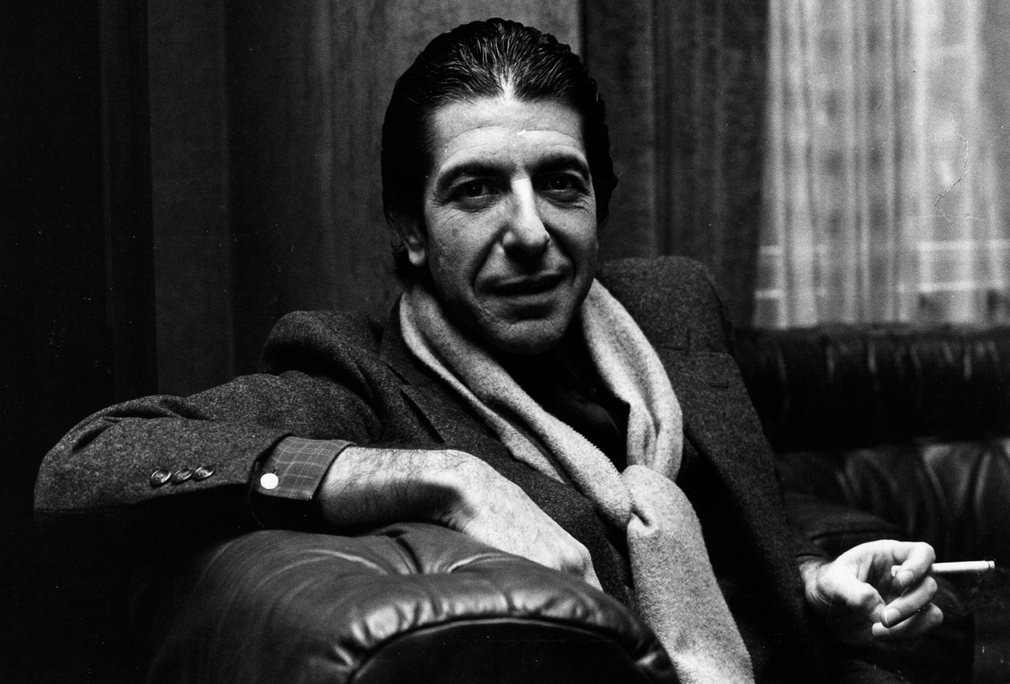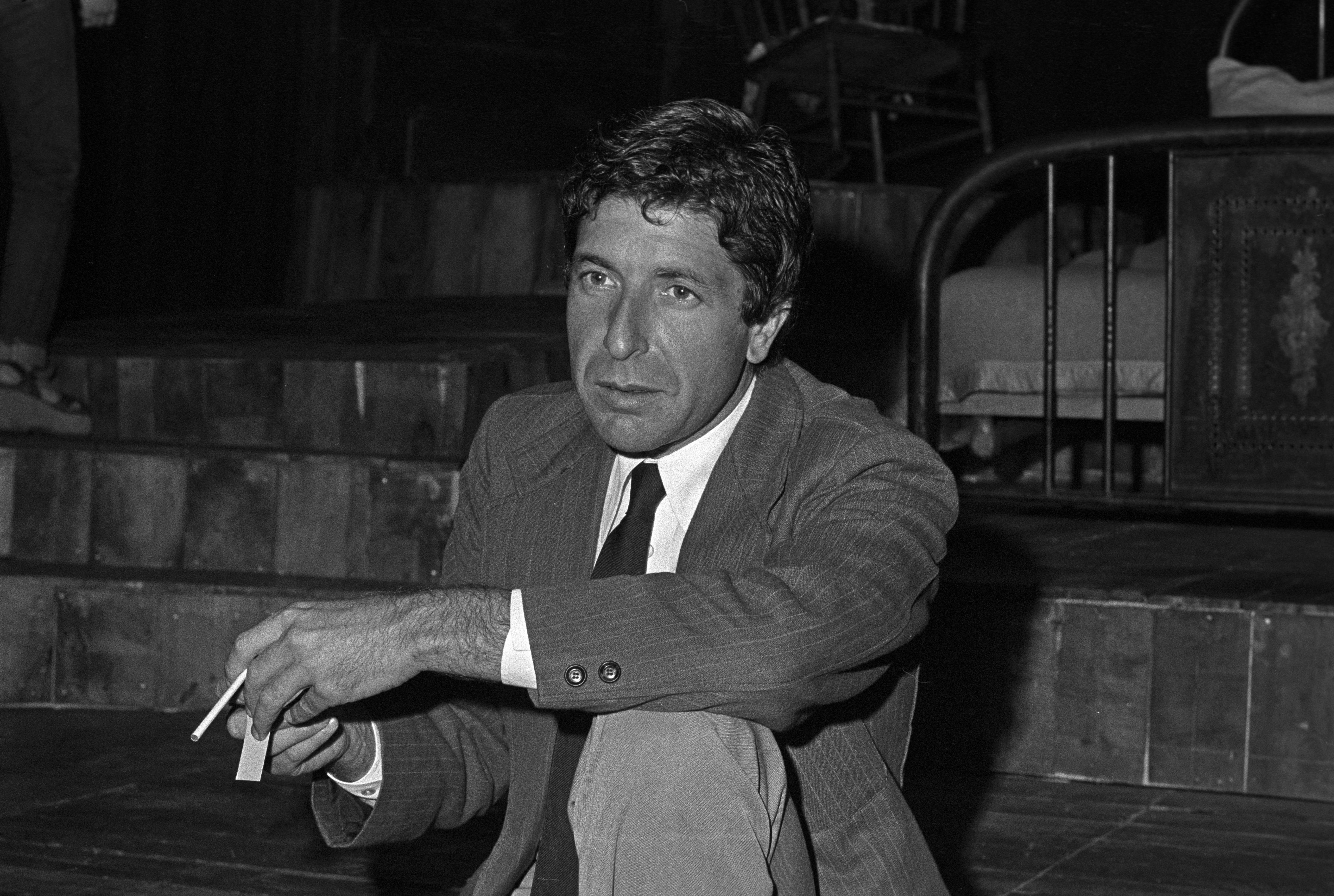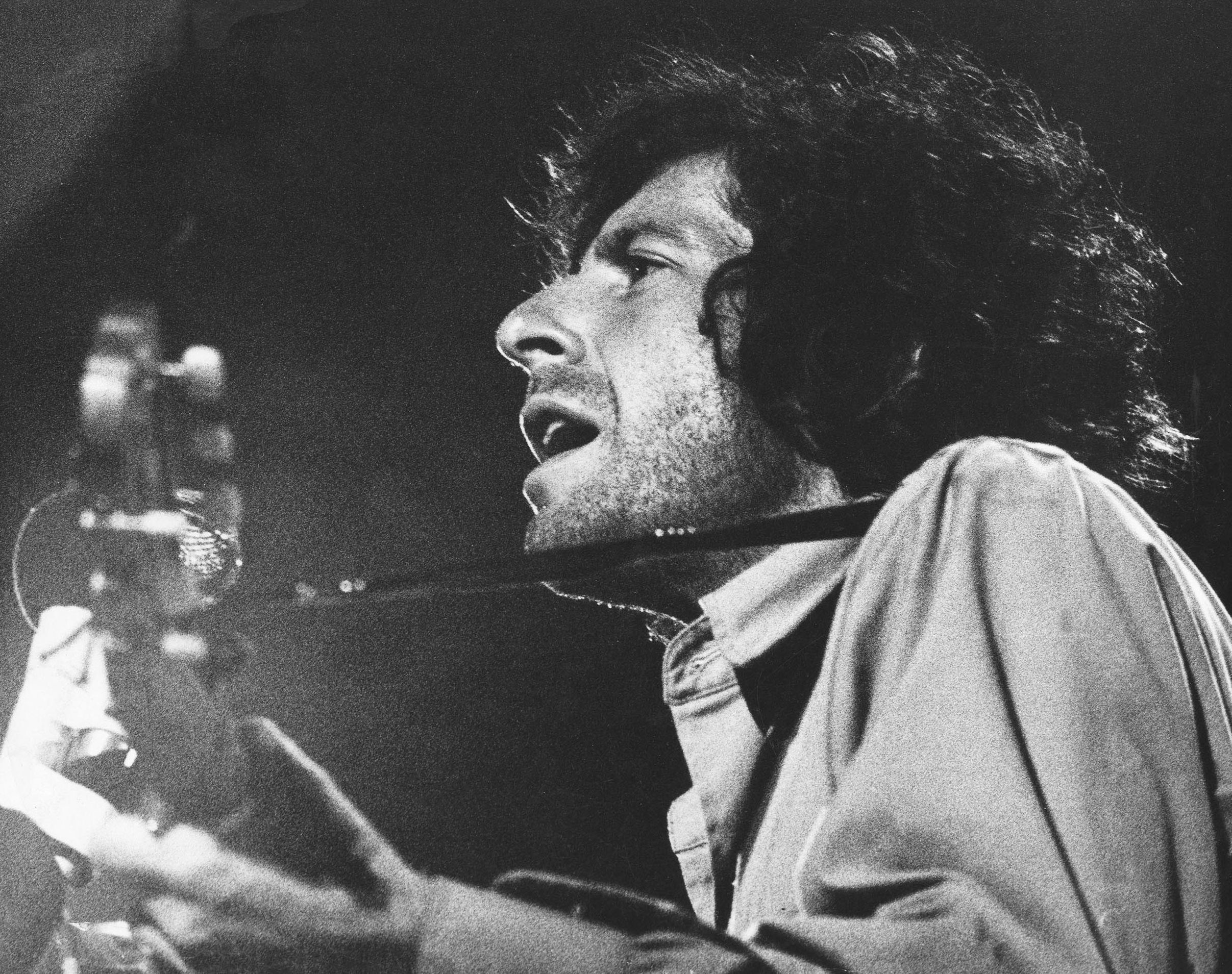In 1991 Leonard Cohen was in conversation with Paul Zollo. They were discussing Cohen’s song Democracy from his sixth album, The Future. Cohen wrote many lyrics for the song. In all, he wrote “about 60” verses.
“Nothing works,” said Cohen. “After a while, if you stick with the song long enough it will yield. But long enough is way beyond any reasonable estimation of what you think long enough may be…Anthem took a decade to write. And I’ve recorded it three times. More.”
Is there a formula to a good song? “It is a miracle,” Cohen quips. “I don’t know where the good songs come from or else I’d go there more often… If I knew where the good songs came from, I’d go there more often. It’s a mysterious condition. It’s much like the life of a Catholic nun. You’re married to a mystery.”
If a song is a miracle – lyrics and music blended by the divine – it’s also about hard work, determination and obsession. “I’m actively working on songs most of the time,” says Cohen. “Which is why my personal life has collapsed. Mostly I’m working on songs.”
Zollo calls Cohen’s song writing “a labour of love”.
“I always knew I was in this for the long haul,” Cohen says, “but somewhere along the line the work just got harder… But why shouldn’t my work be hard? Almost everybody’s work is hard. One is distracted by this notion that there is such a thing as inspiration, that it comes fast and easy. And some people are graced by that style. I’m not. So I have to work as hard as any stiff, to come up with my payload.”
So to Democracy. Cohen sets the scene:
“This was when the Berlin Wall came down and everyone was saying democracy is coming to the east. And I was like that gloomy fellow who always turns up at a party to ruin the orgy or something. And I said, ‘I don’t think it’s going to happen that way. I don’t think this is such a good idea. I think a lot of suffering will be the consequence of this wall coming down.’ But then I asked myself, ‘Where is democracy really coming?’
“And it was the U.S.A… So while everyone was rejoicing, I thought it wasn’t going to be like that, euphoric, the honeymoon. So it was these world events that occasioned the song. And also the love of America. Because I think the irony of America is transcendent in the song. It’s not an ironic song. It’s a song of deep intimacy and affirmation of the experiment of democracy in this country. That this is really where the experiment is unfolding. This is really where the races confront one another, where the classes, where the genders, where even the sexual orientations confront one another. This is the real laboratory of democracy. So I wanted to have that feeling in the song, too.”
The song questions America’s values:
It’s coming from the sorrow on the street
The holy places where races meet
From the homicidal bitchin’ that goes down in every kitchen
To determine who will serve and who will eat
From the wells of disappointment where the women kneel to pray
For the Grace of God in the desert here
And the desert far away
Democracy is coming to the U.S.A.
Cohen explains the creativity of writing, putting music into the physical:
Before I can discard the verse, I have to write it… It’s just as hard to write a bad verse as a good verse. I can’t discard a verse before it is written because it is the writing of the verse that produces whatever delights or interests or facets that are going to catch the light. The cutting of the gem has to be finished before you can see whether it shines.
Below is one of Cohen’s missing verses, a riff on blacks and Jews:
First we killed the Lord and then we stole the blues.
This gutter people always in the news,
But who really gets to laugh behind the black man’s back
When he makes his little crack about the Jews?
Who really gets to profit and who really gets to pay?
Who really rides the slavery ship right into Charleston Bay?
Democracy is coming to the U.S.A.
In another missing verse he sings of symbols:
From the church where the outcasts can hide
Or the mosque where the blood is dignified.
Like the fingers on your hand,
Like the hourglass of sand,
We can separate but not divide
From the eye above the pyramid.
And the dollar’s cruel display
From the law behind the law,
Behind the law we still obey
Democracy is coming to the U.S.A.
One discarded verse made a return at an Oct 5, 1993 concert in London. “This was one of the verses I discarded, among the 50 or 60 I discarded for Democracy,” Cohen told Bob Harris (Whispers: May 26, 1993):
It ain’t coming to us European style
Concentration camp behind the smile
It ain’t coming from the East
With its temporary feast
As Count Dracula comes strolling down the aisleAnd I know your baby’s missing
But we sighted her today
She was cleaning her machine-gun
She was waving her beret
Democracy is coming to the USA
But why didn’t they make the final cut?
“There are about three or four parallel songs in the material that I’ve got. I saw that the song could develop in about three or four different ways and there actually exist about three or four versions of “Democracy.” The one I chose seemed to be the one that I could sing at that moment. I addressed almost everything that was going on in America.
…
“I didn’t want to compromise the anthemic, hymn-like quality. I didn’t want it to get too punchy. I didn’t want to start a fight in the song. I wanted a revelation in the heart rather than a confrontation or a call-to-arms or a defense.”
Was Cohen his best critic?
“I’m tempted to remove everything. At any time. I guess I’ve got a kind of alcoholic courage. Most people are reluctant to remove things. My sin is on the other side. I’m ready to discard the whole song at any time and start over.
“And I think it’s just as grave a defect because probably, at some point down the line, I’ve thrown away some songs that were pretty good. And they’re buried out there somewhere.”
As others dig to shine a light on those unheard words and songs, we look at what Cohen told Bob Harris in 1993.
“I have always been deeply resentful of these paradise ideas, that ignore our myth, our central myth of expulsion from Paradise. So while Eastern Europe was liberating itself, and the Wall was coming down, and the Russian honeymoon was taking place, I said to myself ‘Is democracy really coming to the East?’ And I had to answer truthfully: ‘No, I don’t think it is.’
And then I had to ask myself, ‘Where is Democracy coming from? What is Democracy?’ It’s a kind of religion of the West and like a great religion it affirms other religions and like a great Culture affirms other Cultures, that’s what’s behind it, some notion that there really is an equality of human enterprise. So I further asked myself, ‘Where is it? Where is democracy really happening?’ and that’s when I came upon the line ‘Democracy is coming to the USA’, which of course has an irony.
“I feel that it is the great laboratory of Democracy… I’m not American so I can speak about it with a certain objectivity. I’m not trying to just be a pro-American or some kind of apologist. They’ve been dealing with problems over there that Europe is beginning to confront now, the problem of alien population, the problem of race, the real confrontations that used to make European intellectuals raise an eyebrow a few years ago but you’re in it now, you’re in the same deal and we’re all in the same boat and I think that everybody can summon a blessing for that experiment that’s going on over there, the great American experiment in Democracy.”
Via Songwriters on Songwriting, by Paul Zollo; BrainPickings; Leonard Cohen Prologues
Would you like to support Flashbak?
Please consider making a donation to our site. We don't want to rely on ads to bring you the best of visual culture. You can also support us by signing up to our Mailing List. And you can also follow us on Facebook, Instagram and Twitter. For great art and culture delivered to your door, visit our shop.










